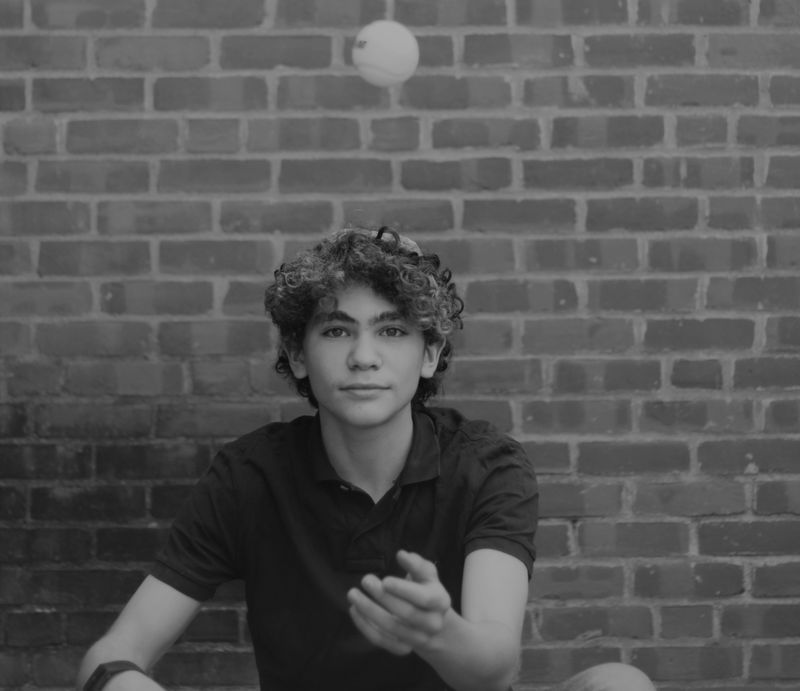We Are America
Bouncing Forward
By Jeremy

Solomon Schechter Day School, Connecticut
For as long as I can remember, tennis has been a part of my life. My father played competitively in his youth and through college. He tells stories of his experiences with the sport—about the heights he reached, the amount of time he spent practicing, and how much he enjoyed the entire process. My grandfather, too, was immersed in tennis life. For over thirty years, he owned Wisconsin’s Mequon Racquet Club. My grandfather offers anecdotes about the responsibilities of running a tennis club or the amount of time he spent driving my father to tournaments across the country. My aunt inherited a similar passion for the sport, my grandmother sometimes participated, and my sister even took lessons from a young age.
As a result, it seemed logical for me to begin playing tennis myself. At four years old, my father signed me up to take lessons with other beginners. Playing the sport made me feel like I was “fitting in,” like I was fulfilling my duty as an Eisen. Those lessons never felt like burdens or obligations, and I even enjoyed hitting the ball—it just felt like my relationship with tennis was in my father’s control, not mine.
The more I played, however, the more I found my own interest and passion for the sport. When my father noticed that my skills were improving, he decided to enroll me in a more intensive program: three-hour practices multiple times a week at a local tennis academy. There, I began receiving more technical advice: how to rotate my shoulders through a swing, what grip to hold on the racket, where to position myself on the court after each shot. The importance of every last detail sparked my meticulous side—one that previously only expressed itself through the occasional drawing assignment or art project. I discovered that tennis was, and is, more than simply a sport or a pastime—it is a lifelong endeavor in which there is always something else to learn. Soon, I found myself spending every free moment pretending to swing a racket as I concentrated on my coaches’ latest advice.
Tennis is now also an outlet for my diligence and persistence. Those three hours of tennis and fitness training, in which I have been participating for three years, are never easy, and I often arrive home exhausted. And sometimes I fail. I miss a shot; I lose a match; I make a wrong move. But those mistakes, I learned, only give me more opportunities to focus on how to improve, more outlets for my “meticulous side.” I get satisfaction just from knowing that I make the most out of every practice, that I drip in sweat to work towards my goals. And after those struggles, I always “cross the finish line” eventually. There is no greater reward than to feel the power of a clean swing after losing the previous point, to hit a serve into the court after missing a thousand times.
Most importantly, however, beyond all the lessons and challenges, I enjoy every second of playing tennis. I look forward to every minute of my eleven hours of weekly practice, and regardless of the weather, I always beg my father to take me to our favorite outdoor court to play with me. I once revered my father as an unbeatable player—but now, he is just another opponent to me.
I cannot wait to see where tennis takes me. My skills are quickly increasing—so who knows? Maybe, when I enter as a freshman next year, I will join my high school’s tennis team. Maybe I will even continue with the sport in college. What will never change, however, is my passion and enthusiasm for it.
I have now taken my tennis practices into my own hands, learned my own lessons, and found my own pleasure. Tennis was once my way of fitting in. Now it’s my way of standing out.
© Jeremy. All rights reserved. If you are interested in quoting this story, contact the national team and we can put you in touch with the author’s teacher.